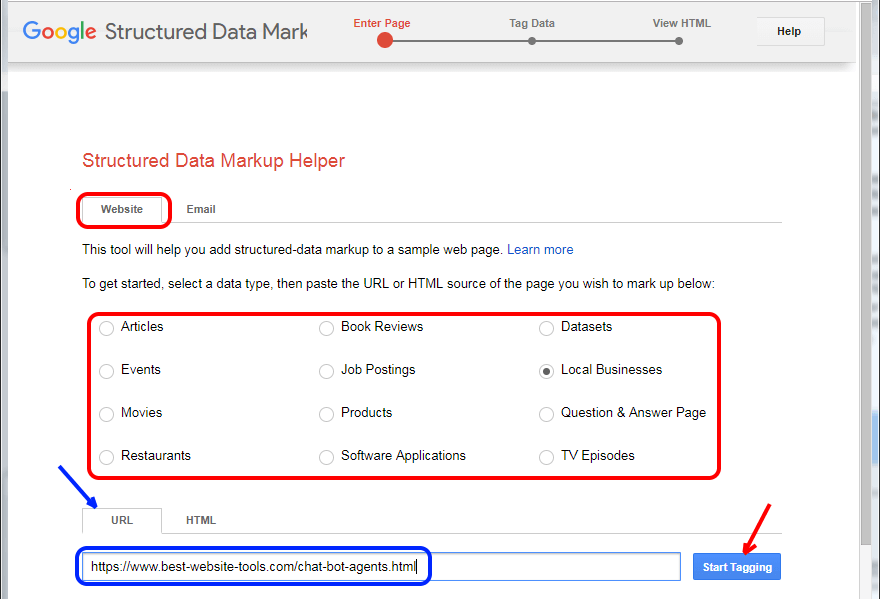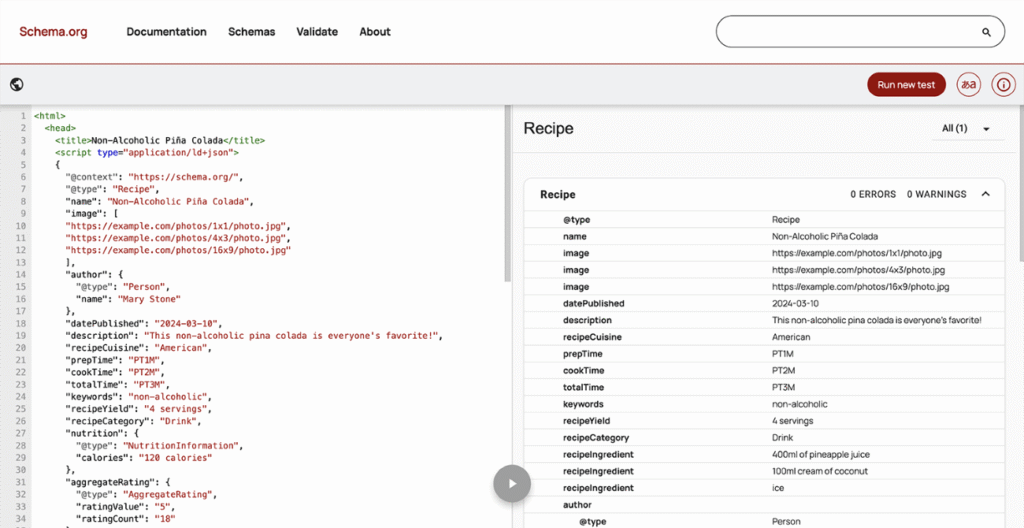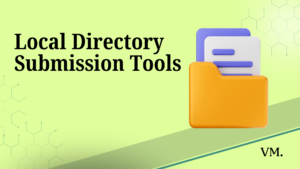By implementing the best local schema markup generators for your business, you can significantly enhance your visibility in search engine results and establish stronger authority in local search performance results.
Local schema markup is a powerful tool that provides search platforms with structured data type about local companies.
This increased visibility not only improves online presence for a local enterprise but also helps attract more customers through the display of rich snippets.
It includes essential business facts such as business name, address, phone number, opening hours, customer reviews, and social profiles that search engines can easily interpret and display to potential customers.
Understanding Local Schema Markup and Its SEO Impact
Local schema markup is a specific type of structured data designed to help search platforms understand essential business details. This structured approach to organizing business information directly impacts your website’s visibility in local search results and helps search engines build a knowledge graph about your business.
Key Components of Local Schema Markup
The foundation of effective local schema markup includes several critical elements. Your business name should appear exactly as it does in official business documentation and on your Google Business Profile.
The complete business address, including street address, city, state, and postal code, helps search engines pinpoint your exact business location. Contact details like phone numbers should be formatted consistently across all web properties. Opening hours, including business hours for holidays, provide customers with accurate availability information.
Customer reviews and ratings build trust signals in the knowledge panel. Email address and social profiles create additional verification touchpoints that improve your website’s content credibility.
When integrated into websites, structured data provides search engines with clear and organized information about a company. This clarity enables search platforms to display relevant details prominently in search output and create more accurate featured snippets for your local business.
Structured data enhances online presence for local businesses by improving visibility in search engine results pages (SERPs), enabling the display of rich snippets that attract users’ attention, providing context to search queries leading to more targeted traffic, and strengthening your presence in local search results through better data organization.
Benefits of Implementing the Best Local Schema Markup Generator
Implementing the best local schema markup generator offers numerous advantages that significantly enhance company visibility in search output and establish E-E-A-T (Experience, Expertise, Authoritativeness, Trustworthiness) signals for your business.
a. Enhanced Visibility and Click-Through Rates
One of the primary benefits of using the best local schema markup generator is the display of rich snippets.
These snippets provide additional information about a company, such as star ratings, reviews, business hours, and specific details about services.
Their visual appeal increases click-through rates, drawing more potential customers to your site. Businesses utilizing proper schema markup have been shown to user experience significantly higher engagement from search engine users.
b. Google Local Pack Appearance
Businesses utilizing proper schema markup from the best local schema markup generator have a higher chance of appearing in the Google local pack, a prime position on search engine result pages. This placement not only boosts visibility but also establishes credibility with users searching for local services. Appearing in the local pack positions your business among the top three local results, dramatically increasing your chances of attracting qualified leads.
c. Increased Organic Traffic and Knowledge Graph Integration
Enhanced visibility translates directly into increased organic traffic. When businesses appear prominently in search findings through proper ease of use of the best local schema markup generator, they attract more visitors who are likely to convert into paying customers.
Additionally, well-structured local schema markup contributes to your business’s representation in Google’s knowledge graph, strengthening your overall digital presence.
10 Popular Tools for Generating Local Business Schema Markup
There are several popular SEO tools that make it easy to generate local business schema markup without needing to code it manually.
These solutions streamline the process of creating structured data, allowing website owners to implement schema markup efficiently regardless of their technical expertise.
1. Google Structured Data Markup Helper

The Google Structured Data Markup Helper stands out as a premier choice among the best local schema markup generator options available. This tool simplifies the process of creating structured data, enabling businesses to enhance their visibility in result pages effectively.
Key Benefits: Direct integration with Google Search Console, real-time preview of how your markup appears in search results, and official Google support ensure accuracy and reliability.
Easy for Use: The intuitive step-by-step interface guides users through the markup process with clear prompts, making it accessible for beginners while offering advanced features for experienced users.
2. Schema.org’s Schema Markup Generator

Schema.org’s Schema Markup Generator is an easy-to-use tool that allows you to create schema structured data without needing extensive coding knowledge. This platform represents the authoritative source for schema standards and offers both free tool options and advanced schema capabilities.
Key Benefits: Customizable templates for different business types, export options for multiple platforms, and compatibility with popular content management systems ensure flexibility across different web environments.
Easy for Use: Simple form-based interface requires no coding knowledge, with immediate code generation that you can copy and paste directly into your website.
3. Yoast SEO

This popular WordPress plugin includes built-in local SEO features that automatically generate schema markup for local businesses when you fill in your business information.
Key Benefits: Seamless WordPress integration, automatic schema generation reduces manual work, and comprehensive local SEO guidance helps optimize your entire local presence.
Easy for Use: Native WordPress integration means no separate tool needed; simply fill in business details in the plugin settings and schema markup generates automatically.
More infos here: Structured data with schema for search and AI
4. Rank Math (WordPress)

Another WordPress SEO plugin with robust schema markup capabilities, including local business schema with an intuitive interface.
Key Benefits: Advanced schema customization options, visual schema builder interface, and integration with Google Search Console provide comprehensive control over your markup.
Easy for Use: Intuitive drag-and-drop interface makes schema markup creation simple, with pre-built templates specifically designed for local businesses.
5. Merkle’s Schema Markup Generator
A free online tool that supports multiple schema types including local business, with options to customize various properties.
Key Benefits: JSON-LD format support favored by Google, no account required, and straightforward customization options for local business specifics.
Easy for Use: Browser-based tool requires no installation or technical setup; fill in your details and generate clean, ready-to-use code immediately.
6. Technical SEO’s Schema Markup Generator
A straightforward browser-based tool where you select “Local Business” and fill in your details to generate clean JSON-LD code.
Key Benefits: Minimalist interface focused on local business schema, no unnecessary complexity, and generates production-ready code without bloat.
Easy for Use: Simplified form-based approach gets you from zero to generated code in minutes without overwhelming options or settings.
7. All in One SEO (WordPress)

Includes local business schema features along with other SEO capabilities for WordPress sites.
Key Benefits: Comprehensive SEO schema suite combines local schema markup with other optimization tools, reducing the need for multiple plugins and providing integrated local SEO management.
Easy for Use: Built directly into WordPress dashboard with intuitive settings panels that automatically generate schema markup alongside other SEO optimizations.
Choosing the appropriate implementation format depends on your specific business needs and technical capabilities. Different schema types and implementation methods serve different purposes in your overall Technical SEO strategy.
8. JSON-LD (Recommended Format)
JSON-LD is widely recommended by Google for its simplicity, effectiveness, and ease of implementation. The format allows for easy implementation by placing the script in the head section of a homepage or within the body without interfering with your HTML structure.
This reduces the likelihood of errors that could negatively impact your website’s functionality or visibility in search results.
9. Microdata Implementation
Microdata integrates directly into the HTML content of a webpage, providing context to search engines by using specific attributes around existing HTML elements.
While this approach offers granular control, it can complicate code and potentially create issues if not implemented correctly by experienced developers.
10. RDFa (Resource Description Framework in Attributes)
RDFa offers more flexibility than microdata in terms of linking data across different resources. It uses attributes in HTML5 to define relationships between items, which proves beneficial for complex data structures.
However, RDFa often requires deeper technical knowledge, making it less accessible for some website owners.
Best Practices for Using the Best Local Schema Markup Generator
Essential Elements to Include
When using the best local schema markup generator, ensure your markup includes all required fields: business name exactly as it appears legally, complete business address with postal code, verified phone number, current business hours including holidays, customer reviews when available, and geographical coordinates for precise location identification.
Validation and Testing
After generating your schema markup, validation through Google’s testing tools ensures accuracy and proper implementation. Use Google’s Structured Data Testing Tool by accessing it through Google Search Console. Paste your generated schema code into the designated area and click “Run Test” to check for errors and warnings before deployment.
The Rich Results Test provides additional validation capabilities. Visit the Rich Results Test page, input your URL or paste code directly, and click “Test URL” or “Test Code” to see how Google interprets your structured data. Both validation tools provide valuable feedback, allowing you to rectify any issues before integrating the markup into your website.
Maintaining Up-to-Date Local Schema Markup
Regular updates to local schema markup are essential for ensuring information accuracy in search listings and maintaining your standing in local search results.
As your business evolves, so too does the need for accurate details that reflect current offerings and operations.
Proactive Monitoring Strategy
Regularly review schema and update your business information, including address changes that can impact visibility, phone number updates to ensure customers can reach you easily, and hours of operation adjustments for holidays or seasonal changes.
Set up alerts for any changes in your business environment, such as new services or products launched or changes in ownership or management.
Analyze customer reviews and ratings, which may prompt adjustments to your schema markup and help maintain credibility and relevance. Conduct routine audits of your schema markup to identify outdated information and verify that structured data aligns with actual business operations.
Summary: Best Local Schema Markup Generators for 2026
Implementing local schema markup using the best local schema markup generator is essential for businesses aiming to enhance their visibility in search engine results and establish strong authority in local markets.
The tools discussed, including Google Structured Data Markup Helper, Schema.org’s Schema Markup Generator, and JSON-LD Schema Markup Generator by Merkle, provide comprehensive solutions for creating structured data effectively.
Focus on integrating essential elements like business name, address, business hours, and customer reviews to ensure comprehensive schema representation. Regularly update your schema templates to reflect any changes in business information and conduct periodic validation through Google’s testing tools.
By adopting these best practices and leveraging the best local schema markup generator for your specific needs, businesses can significantly improve their online presence, attract more customers, and dominate local search results in their market.nificantly improve their online presence, attract more customers, and stand out in local searches.
FAQs: Best Local Schema Markup Generators
How often should I update my local schema markup and what triggers require immediate changes?
Update your local schema markup whenever business hours change seasonally or for holidays, whenever your phone number or address changes, when you add new services or products, or when you modify your Google Business Profile information.
Schedule quarterly audits of your schema markup to identify outdated information and ensure consistency across all web properties, maintaining optimal visibility in local search results.
What required fields must I include when using a JSON-LD Schema Generator for local business?
Required fields for JSON-LD local business schema include your official business name, complete business address with postal code, verified phone number, and business website URL.
Additional recommended fields include business hours, customer reviews with ratings, social profiles for verification, and geographical coordinates to enhance accuracy in local search results and knowledge graph representation.
How does local schema markup improve my website’s visibility in Google Maps and local search results?
Local schema markup helps search engines understand your business location through postal code information, coordinates, and address data, making you more discoverable in Google Maps and local search results.
This structured data enables your business to appear in the Google local pack and knowledge panel, dramatically improving visibility when customers search for services in your area.
Which free tool provides the best schema generator capabilities for small business owners?
Google Structured Data Markup Helper offers the best free tool functionality for small business owners, combining user-friendly interface design, real-time preview capabilities, and direct integration with Google Search Console.
Schema.org’s Schema Markup Generator provides equally robust free version options with customizable templates and export capabilities compatible with WordPress and other content management systems.
What is the difference between JSON-LD and Microdata schema markup formats?
JSON-LD is recommended by Google for local business schema implementation because it’s easier to implement, doesn’t interfere with HTML structure, and reduces implementation errors. Microdata integrates directly into HTML, offering granular control but potentially complicating code. J
SON-LD proves superior for most website owners seeking simplicity and reliability in Technical SEO strategy without extensive coding knowledge.
Share:




